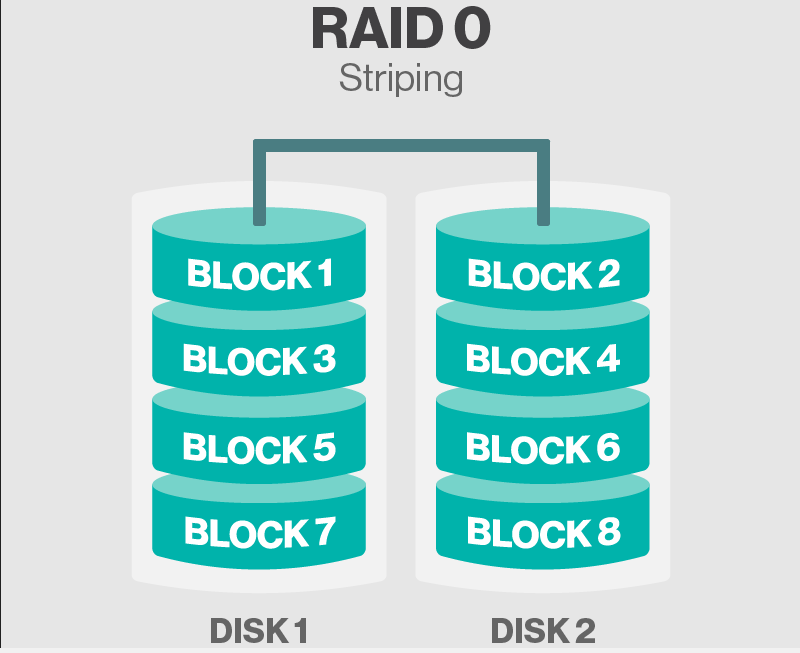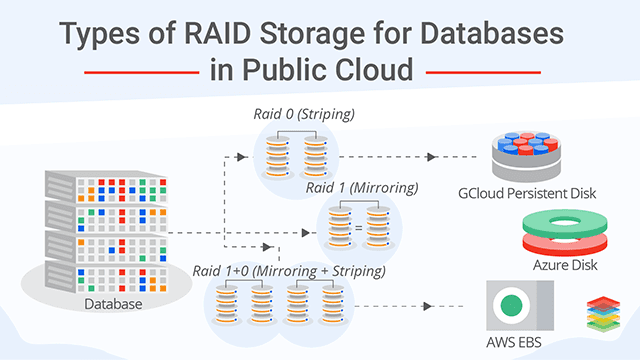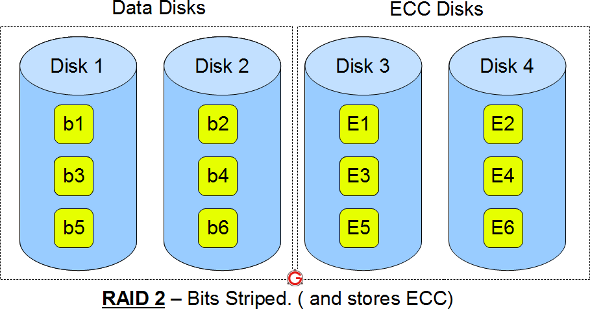RAID Level 0 1 5 6 And 10 Advantage Disadvantage Use
WEB Sep 7 2011 nbsp 0183 32 Ideal use RAID 1 is ideal for mission critical storage for instance for accounting systems It is also suitable for small servers in which only two data drives will be used RAID level 5 Striping with parity RAID 5 is the most common secure RAID level It requires at least 3 drives but can work with up to 16
The 8 Types Of RAID Storage And How They Work Spiceworks, WEB Jan 9 2024 nbsp 0183 32 A redundant array of independent disks abbreviated as RAID is a storage technology that combines multiple hardware disk units into a virtualized logical unit to improve data storage s performance reliability and ease of access This article explains the working and types of RAID data storage for enterprises

Ultimate Guide To RAID Levels Definition Types And Uses
WEB May 8 2023 nbsp 0183 32 What are the implementation types of RAID What are the different RAID levels Bottom line Effectively using RAID in your business What is RAID storage RAID stands for Redundant Array of Independent Disks It s a storage technology designed to improve the fault tolerance of hard drives
Comparing RAID Levels 0 1 5 6 10 And 50 Explained, WEB Nov 15 2023 nbsp 0183 32 RAID levels explained RAID levels can be broken into three categories standard nonstandard and nested Standard levels of RAID are made up of the basic types of RAID numbered 0 through 6 A nonstandard RAID level is set to the standards of a particular company or open source project

RAID Levels 0 1 5 6 And 10 amp RAID Types Software Vs
RAID Levels 0 1 5 6 And 10 amp RAID Types Software Vs , WEB Apr 22 2020 nbsp 0183 32 Redundant Array of Independent Disks RAID is a storage technology that creates a data loss fail safe by merging two or more hard disk drives HDDs or solid state drives SSDs into one cohesive storage unit or array

Virtualization The Future RAID Types Explained
RAID Definition Function And Types IONOS
RAID Definition Function And Types IONOS WEB 08 16 2021 Security What is RAID Redundant Array of Independent Disks RAID improves the fail safety of data storage devices Developed for use in HDD hard drives it s still used today in server environments What exactly does the structure of a RAID system look like and what are the differences between the individual levels Contents

A Simple Explanation For RAID 2 RAID 3 RAID 4 RAID 6 With Diagram
WEB Oct 22 2021 nbsp 0183 32 Check out our quick guide to RAID to learn the differences and when you should use each type RAID stands for Redundant Array of Inexpensive Disks and is a popular data storage technique that has the potential to increase performance prevent downtime and protect against data loss All The Different RAID Types Explained MUO. WEB Feb 15 2024 nbsp 0183 32 In short RAID is a way in which you can link up several hard drives so that if one of them fails the others can take over the load more or less seamlessly WEB Overview RAID Storage Storage that matches your specific needs for system performance data redundancy or both Shop RAID Solutions What is RAID Storage RAID or Redundant Array of Independent Disks is a type of storage that writes data across multiple drives within the same system

Another Raid Types And Uses you can download
You can find and download another posts related to Raid Types And Uses by clicking link below
- What Are RAID Levels And Which Are Best For You
- Die Grundlagen Der RAID Speichertechnologie
- RAID 5 Vs RAID 6 Capacity Performance Durability TechTarget
- RAID 3 Redundant Array Of Independent Disks Explained Itechguides
- RAID Levels 0 1 4 5 6 10 Explained Boolean World
Thankyou for visiting and read this post about Raid Types And Uses